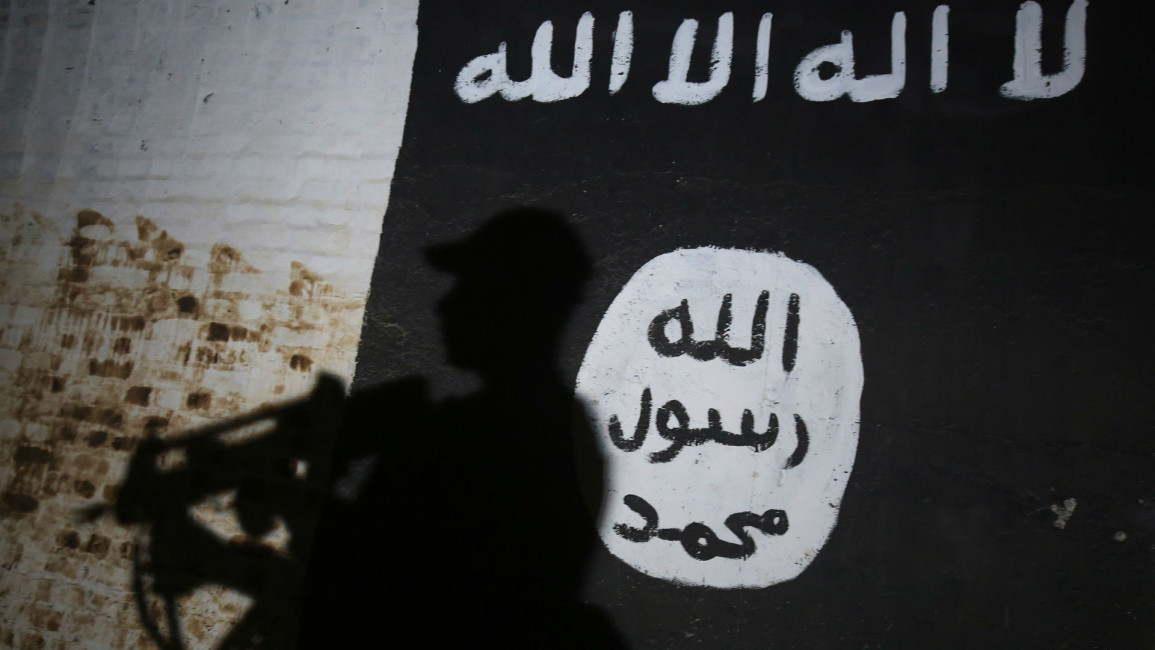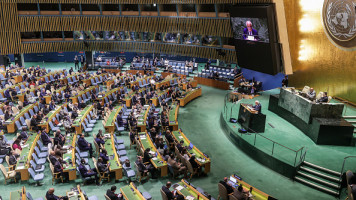Russia blocks return of IS militants' families: activist
Kheda Saratova, a Chechen activist who is on Kadyrov's human rights council, said Russia's federal authorities were no longer willing to bring back women and children under a program championed by Chechnya's powerful leader Ramzan Kadyrov since last year, in which around around 100 women and children - mostly from Russia's majority-Muslim Caucasus - have returned.
"According to our organisation, there are over 2,000 of them left in Syria and Iraq," she told a news conference in Moscow where two women who were brought back from Syria under the program also spoke.
"The process of bringing them back has been stalled and nobody has told us why," Saratova said.
She blamed Russia's FSB security service and its chief Alexander Bortnikov. He recently criticised the repatriation programme, saying terrorist groups were using the women and children as "recruiters."
Saratova said the drive to bring back the women - who she said were mostly forced to go to Syria by their partners - was supported by Russian President Vladimir Putin.
"I ask Bortnikov to change his attitude to this subject," she said.
"Whatever information they (the FSB) need, we will give them. These women are not hiding anything."
The FSB did not immediately release a statement on Tuesday or respond to a call seeking comment.
'Do not abandon women'
Two women brought back from Syria called on Moscow to help the "hundreds" of other women from Russia who are being held in refugee camps in Syria and Iraqi prisons.
"I want to thank the Russian government for saving my children. I ask you not to abandon the women who are still there," said Dagestani Zagidat Abakarova, whose husband forced her and her child to go to Syria.
She managed to flee then IS-controlled Raqqa in Syria last year after her husband was killed by a US drone and made contact with Russian authorities at a Kurdish refugee camp.
"We are very thankful to our country. Only Russia was bringing back women and children," said Zalina Gabibullaeva, a Chechen woman who was brought back from Syria with her children last year.
Several thousand Russians travelled to join jihadists in Syria and Iraq in recent years, according to estimates from the Russian security services. Some took their families with them.
Many Russian militants and other foreigners joined the so-called Islamic State militant organisation that controlled large parts of Syria and Iraq until its defeat in 2017.
Saratova said she had requests from 700 relatives from all over Russia asking to bring their relatives home.
She said 21 Russian women in Iraq had been given life sentences and that the Russian government is currently negotiating on bringing their children to Russia.
Around 60 children are expected to be brought back to Russia in the near future, she said, adding that "all the documents are ready."
The FSB chief's criticism of the repatriation programme prompted an angry reaction from Kadyrov, who wrote on social media: "I want to assure you once again that not a single (Russian) woman or child in Syria or Iraq will be left unattended."
IS fighters swept into Iraq in the summer of 2014, taking control of nearly a third of the country. At the height of the group's power its self-proclaimed caliphate stretched from the edges of Aleppo in Syria to just north of the Iraqi capital, Baghdad.
With its physical caliphate largely destroyed, IS is transforming from a "proto-state" to a covert "terrorist" network, "a process that is most advanced in Iraq" because it still controls pockets in Syria, according to a UN report.
The UN report said IS may still have up to 30,000 members roughly equally distributed between Syria and Iraq.
Agencies contributed to this report.
Follow us on Twitter: @The_NewArab



